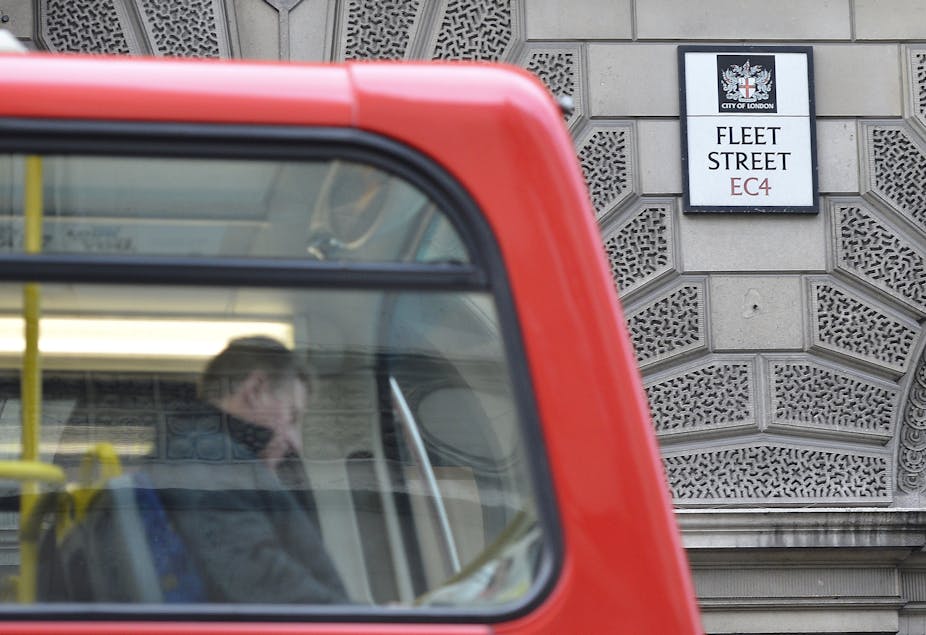When Sun journalists Chris Pyatt and Jamie Pharo were acquitted recently of aiding and abetting a Surrey police officer to commit misconduct in a public office, Pyatt’s lawyer Nigel Rumfitt QC told the court there had been a “monumental error of judgement in pursuing the case”. He was right. Four years, millions of pounds of public money, 29 cases brought – only one of which went to trial and ended in conviction: that of Sun crime reporter Anthony France.
I do wonder if the campaign for media victims has had more than its pound of flesh since “Hackgate” and the Leveson Inquiry. At least half a billion pounds has been stripped out of the media industry in compensation, legal fees and police and prosecution costs. That’s hundreds of jobs my students will not be able to get in journalism.
Some 34 journalists were arrested in the Operation Elveden Met Police inquiry into paying public officials for stories. Many said they were terrorised with dawn raids and being put in police cells for a construction of crime that some media lawyers say was and is simply democracy. For many it was a nightmare that went on for years taking its toll on the wronged journalists’ careers, their personal lives and their health.
Not only that, but more than a score of confidential sources have been jailed. More lives ruined and careers destroyed. Now, any public official who dares give unauthorised information, let alone take money from a journalist, knows that instead of losing their job are more than likely to do porridge at her majesty’s pleasure.
Media relations with the police are at their worst for as long as anyone can remember. Can it really be democracy when police officers and soldiers have to write up reports on their dealings with journalists? Is it democracy that police forces have been able to secretly hack into the communications meta-data of journalists to identify sources without judicial oversight?
I was disgusted by the horrors of phone hacking and sympathise with the victims. But I do not believe I would be betraying their right to justice and compensation by being opposed to state body approval for media regulation.

The press media landscape has changed catastrophically. We no longer have the country’s biggest selling Sunday newspaper, the News of the World. That imploded in shame and was snuffed out by its own proprietor.
The Press Complaints Commission has also committed harakiri to be replaced by a more expensive independent self-regulator, IPSO. This takes third-party complaints and by contract with its members can impose huge fines, can initiate investigations and is also preparing to dip its toes into a media law disputes arbitration service.
Chilling effect
The only sensible recommendation arising from the Leveson Inquiry was that there should be a statutory declaration for media freedom (a kind of British First Amendment) though – like with the Human Rights Act – always balancing freedom of expression with other rights.
Nothing will be achieved for media victims by introducing a form of quasi state licensing of the regulation of content by newspaper and online publishers. I think it’s a breach of Article 10 of the European Convention on Human Rights.
Regulation by the medieval constitutional instrument of Royal Charter constitutes state interference. And surely we’ve moved on since the times of the Curia Regis, absolute power by Tudor monarch and arbitrary Star Chamber justice. In any case when the convention says this article: “shall not prevent States from requiring the licensing of broadcasting, television or cinema enterprises” by default this means: states must not be involved in the regulation of press content.
The Leveson Inquiry was set up to reach a solution that had the support of media victims, the public and the media industries. Sadly it failed to do this.
The biggest problem of unequal media laws in a democratic society is that journalists will be constrained from publishing truth to power because of the potential costs and penalties of libel and privacy litigation, and state prosecution for information crimes.
Libel and privacy are the only civil wrongs where defendants have to prove their case as McLibel campaigners Helen Steel and Dave Morris found out over several tough years trying to fight the might of a major global corporation under Britain’s terrifying libel laws. And the chilling effect created by those laws is the big black hole in this debate. When media publishers don’t believe they have the money, time or resources to prove their publications the harm to democracy is incalculable, catastrophic and frighteningly unknown.
Brace yourselves: in early November the provisions of the Crime and Courts Act 2013 relating to press regulation will be coming into force, meaning that media publishers who do not join a Royal Charter-approved regulator face getting punitive damages when losing libel and privacy actions.
The other Levesonian stick approved by parliament is that these publishers would also have to pay the costs of defending media law cases whether they win or lose. This will turn the chilling effect into an arctic of defensive journalism and, as a result, there is bound to be a shrinking of investigative journalism by print media.
These silly laws and disproportionate measures will make media victims of us all.

